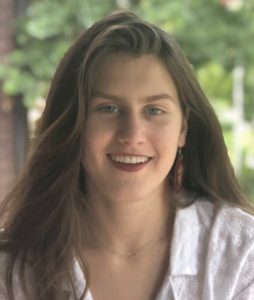By Emanuelle Sippy and Sanaa Kahloon
With Eastern High School student Solyana Mesfin’s recent appointment by Gov. Andy Beshear as a non-voting member of the Kentucky Board of Education, Kentucky joins the ranks of 20 other states who have young people playing a similar role. As a Jefferson County junior and daughter of Ethiopian immigrants who is active in several youth-driven, equity-oriented leadership groups, including ours, Solyana brings exceptional capacity and perspective to the job.
Commissioner Kevin Glass, chair Lu Young, and other members of the Kentucky Board of Education deserve immense credit for this development, as do a patchwork of Kentucky districts like Boone, Woodford, and Gallatin counties that have been supporting student representation on local school boards for many years now. And while it is important to recognize that visionary adults have paved the way for more meaningful student voice in school governance, it is as important to note that Kentucky students have contributed, too.
Kentucky youth led the charge in 2015 with House Bill 236, an act early members of the Prichard Committee Student Voice Team conceived, drafted, and promoted widely to add students to superintendent screening committees. Months of student-led testimony, op-ed writing, editorial board meetings, and partnerships with youth development program powerhouses like the Kentucky YMCA, Governor’s Scholars, and the speech and debate circuit resulted in a spectacle that reflected the depth of our commitment to creating more just, more equitable schools. That was when hundreds of students from districts across the state made their way to Frankfort and joined a bipartisan group of legislators on the steps of the capitol to advocate for the bill in a major media event that they organized themselves.
Ultimately, and due largely to unfriendly amendments that were added to it by state legislators, the bill was dropped in the final moments of the session. The deeply disappointed organizers willed themselves some solace: “We take comfort in knowing that in the process of building support for our bill, we have demonstrated what is possible when students work as partners to improve our schools and our communities more broadly,” they wrote in a final op-ed.
In the years since, our team, incubated by the Prichard Committee for Academic Excellence, has continued to expand the possibilities around student voice in Kentucky and built a constituency around the effort. We’ve invested deeply at both the grassroots and grasstops levels with intentionality around amplifying and elevating the voices of Kentucky students who are least heard in the system and supporting students to make their schools safer, more inclusive, and more engaging from the inside out.
We have written policy reports and led workshops for students and educators about what meaningful student voice in school governance looks like; we have conducted and taught others to conduct student-led school climate audits; we have published a book featuring students’ stories surfacing inequities in the postsecondary transition process; we have mobilized coalitions and spearheaded campaigns to restore need-based college scholarships and raise the state’s investment in more preventative school safety measures; and we are currently leading one of the most rigorous examinations of the statewide impact of COVID-19 on students in the country.
In honing and sharing our model, we’ve also been serving as education thought leaders and intergenerational partners, and we have been doing so independently, without formal appointments and in most cases too, without awaiting permission.
Increasingly, we are also finding ourselves in excellent company, as local youth-driven groups such as the Kentucky Student Council Association, Black Student Unions, the Bluegrass Youth Sustainability Council, and the Louisville Youth Coalition, among others, have been moving the needle on a range of civic and policy issues.
This is all to say that Kentucky students are at the forefront of today’s student voice movement, and as long as Solyana is supported to build on that existing energy in a way that recognizes the promise of authentic youth agency, partnership, and diverse representation in education decision-making, our state, our schools — and our students — will be especially well served.
Emanuelle Sippy is a senior at Henry Clay High School and the student director of the Prichard Committee Student Voice Team. Sanaa Kahloon is a senior at Paul Laurence Dunbar High School and the Student Voice Team’s research director.



















